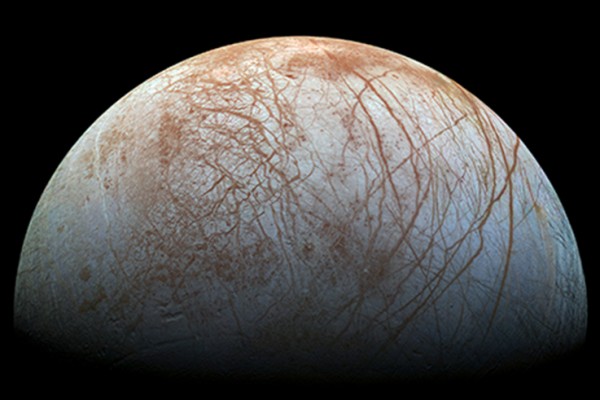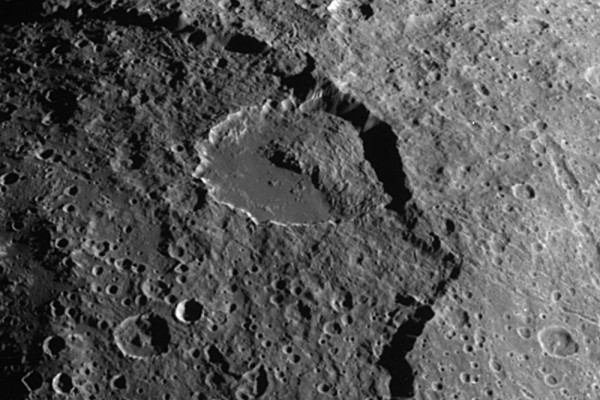Europa, here we come
Scientists have been itching to go to Europa for a long time because this moon is thought to have a global ocean beneath an outer shell of ice — an ocean that may be hospitable to life. In May, NASA took the first step, selecting nine instruments to fly on a mission to Europa. Washington University’s William McKinnon, on the science team for two of the instruments, talks about the mission.
Landslides on other worlds
Saturn’s ice moon Iapetus has more giant landslides than any solar system body other than Mars. Measurements of the avalanches suggest that some mechanism lowered their coefficients of friction so that they flowed rather than tumbled, traveling extraordinary distances before coming to rest. Scientists at Washington University in St. Louis, who have been studying the ice avalanches suggest a experimental test that might provide some answers.

